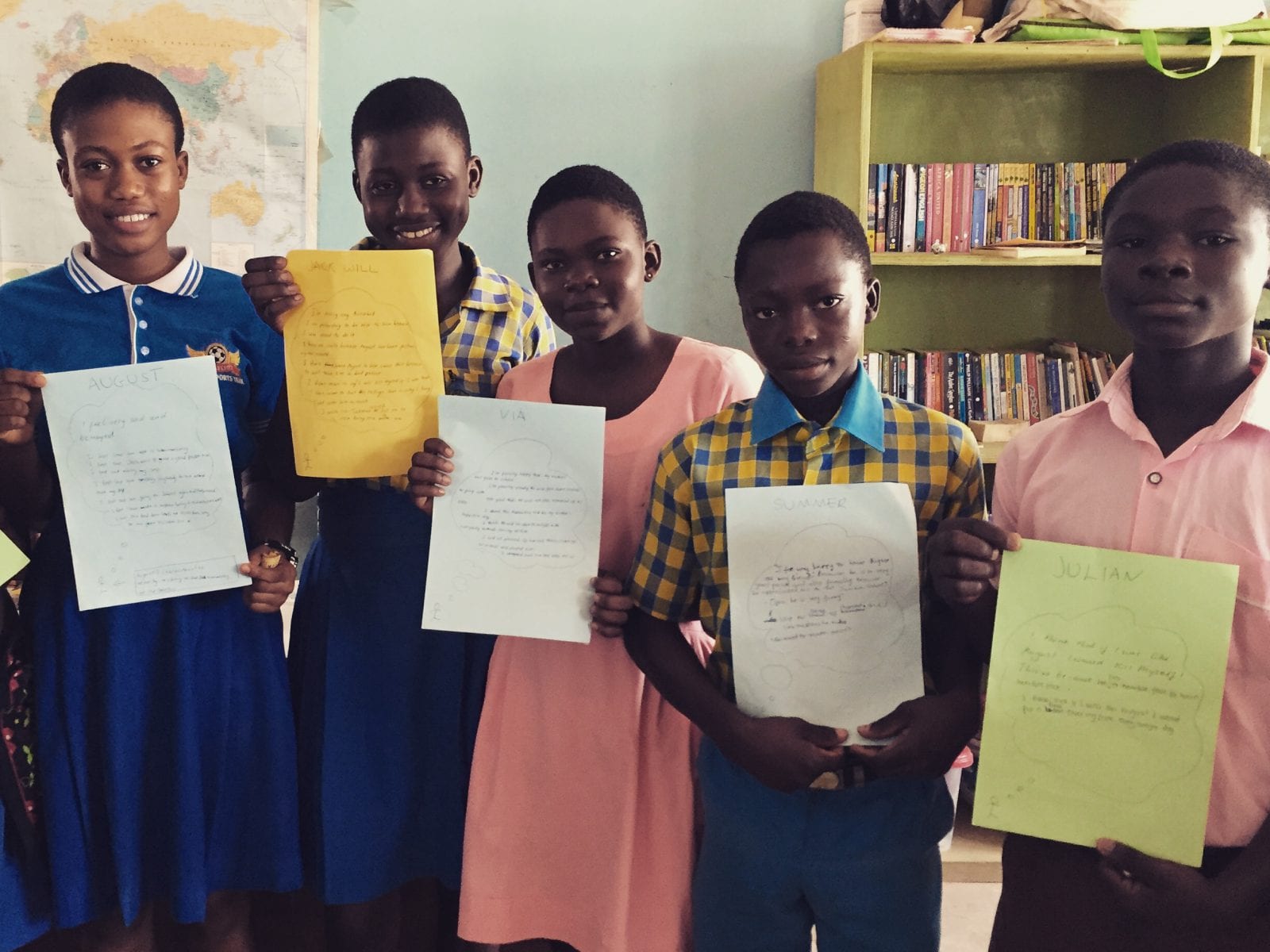These are suggestions of questions to ask pupils from Primary 3 – Junior High School 3 to ensure that children are thinking when they are reading books. These questions encourage pupils to go beyond summarising the content of a book. These questions are mostly to ask after reading, although some can be asked before or during reading the book.
We hope to distribute these questions in a laminated form to our libraries in Ghana to help parents, teachers, and libraries engage with their children’s reading – do send us any other suggestions! contact@readingspots.org
Basic
- From the book cover, what do you think the book will be about?
- What do you think the title tells us about the book?
- What do you think is going to happen next? (can be asked at various points throughout the book).
- Who is your favourite/least favourite character in the book? Why do you like/not like them?
- What have you learnt from the book?
- Did you find any words difficult in the book? If so, which ones?
- Did the pictures help you to understand the story better?
- Which picture was your favourite? Why?
Intermediate
- What made you choose this book from the shelf?
- How would you feel if that happened to you? (After a particular event).
- Was there a particular problem in the book? How was it solved?
- What was the setting of the book? Did the author make it vivid? How did he/she achieve this?
- Did the book end as your expected?
- What is the ‘moral’ of the story?
- Which character interested you most? Why was their character interesting?
- Does the title of the story give a good indication of the novel? How would you rename it?
- Would you recommend this story to another child? Why?
Advanced
- Are there any literacy devices used in the book (e.g. metaphors, similies, personification, onomatopoeia).
- Are there any themes in the book that relate to current society? If so, what can we learn from the book with respect to the issue?
- Can you think of an alternative ending?
- Whose perspective is the novel given from?
- Can you think of how the story might be told from a different perspective?
- Look back to the first page of the book. Did it captivate your attention? How? Could it be improved?
- Does the start of the book give you any indication about how it might end?
- Which character do you identify with most? (Who is most like yourself?) Explain!
- Is there anything in the book that you disagree with?
Possible Written/Dramatic Activities
- Pupils could look up all words that they do not know in a dictionary and keep a ‘vocab list’ in a special books.
- They could act out parts of a book with their friends.
- They could practice reading a section of the book expressively to family and friends.
- They could write your own ‘Part 2’ sequel or a prequel to a book.
- They could write an alternative ending or beginning to a book.
- They could create a different front cover or title for the book.
- They could write the story from the perspective of a particular character.
- They could make a list of different characters in the book and their qualities and behaviour – you could then act in the behaviour of those characters with your friends.
- They could make a spider chart of the key themes discussed in the book.
- Pupils could summarise the book in 100 words. (Perhaps emphasise that summarising involves highlighting key points, not repeating various sentences).
- Pupils could create their own record of the all the books they have read and summarised.
Email contact:
info@eduspots.org for any more suggestions – this is very much a work in progress!


